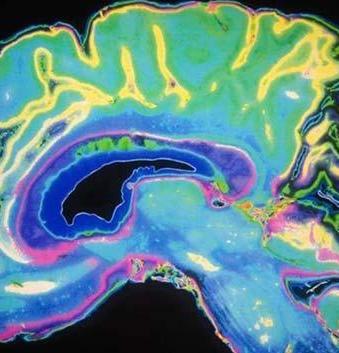Moody and neurotic? It could be linked to the shape of your brain
Personality traits such as moodiness or open-mindedness are linked to the shape of one’s brain, a study said. Researchers said they found a striking correlation between structural brain differences and five main personality types. A team at Cambridge University studied brain imaging from 507 people to try and link the shape of our brains with five key personality traits. The team concluded that the outer layer of the brain - similar to the skin of an apple - is thicker and the brain less folded in neurotic people who are prone to mood changes and psychiatric disorders. Individuals with ‘open’ personalities linked to curiosity and creativity show the opposite. Researcher Dr Luca Passamonti says that long-term applications could include early diagnosis of severe anxiety and other psychiatric disorders.
Evolution has shaped our brain anatomy in a way that maximises its area and folding at the expense of reduced thickness of the cortex.
Dr Luca Passamonti
Psychologists break down human personality into five traits: neuroticism; openness; extraversion/enthusiasm; agreeableness (a measure of altruism); and conscientiousness (a measure of self-control). But the study could not conclude that brain shape determines a personality type. Study co-author Roberta Riccelli said: “We cannot answer the question: 'What came first, the chicken or the egg?’ Hence we can’t say if we have a specific personality type because our brain has a specific shape.” Neuroscientist and MIT lecturer Dr Tara Swart says the new research bolsters earlier evidence that the right sort of brain 'training’ creates a measurable, physical benefit in the human brain.
'Training’ in this case means how we are brought up, educated, who we socialise with and also how much time we spend on mindfulness activities.
Dr Tara Swart

Science